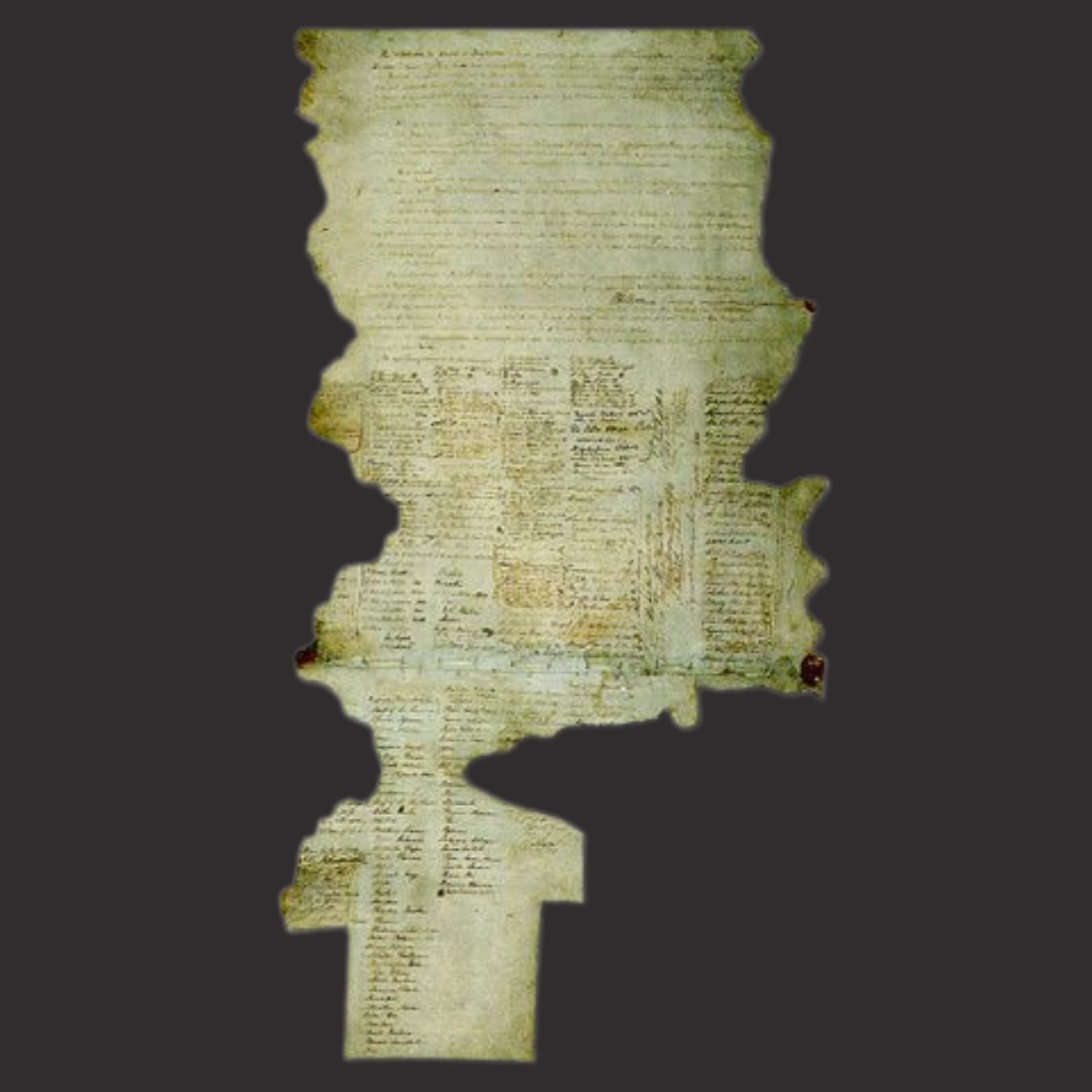On Monday, 6 February, we commemorate the signing of the Treaty of Waitangi in 1840.
Many Māori see the Treaty in spiritual and Christian terms as is seen in one of their names for the Treaty: ‘Te Kawenata o Waitangi’ (‘the Covenant of Waitangi’).
Covenant is a very appropriate word to use. The word itself is of Latin origin (con venire), meaning a coming together.
In our context it describes two peoples who choose to come together to make a contract, agreeing on promises, stipulations, privileges, and responsibilities. As in the marriage covenant the understanding is that Te Kawenata o Waitangi is permanent, and is based upon God’s covenants with the faithful of this world.
The Treaty of Waitangi was prepared and signed out of deep concern of the impact of European settlement upon Māori.
In the 1830s New Zealand was increasingly attractive to European settlers, and it was also largely without any protections that governed settlement. Those Missionaries then serving here were concerned that the lack of legal protection for Māori could have catastrophic consequences, and talk of a formal relationship began to develop.
At the same time in England evangelical Christians were prominent in public service and parliament, these leaders were deeply influenced by the teaching and the life of Jesus, and their reforms which included the abolishment of the slave trade in the British empire were far-reaching. Amongst the same group a campaign began for the protection of Māori. James Stephen, the brother in law of William Wilberforce, was part of this. He was also the permanent undersecretary in the Colonial Office, and was instrumental in drafting the following instructions that were to guide William Hobson when he was sent to New Zealand.
All dealings with the Aborigines for their Lands must be conducted on the same principles of sincerity, justice, and good faith as must govern your transactions with them for the recognition of Her Majesty’s Sovereignty in the Islands. Nor is this all. They must not be permitted to enter into any Contracts in which they might be ignorant and unintentional authors of injuries to themselves. You will not, for example, purchase from them any Territory the retention of which by them would be essential, or highly conducive, to their own comfort, safety or subsistence. The acquisition of Land by the Crown for the future Settlement of British Subjects must be confined to such Districts as the Natives can alienate without distress or serious inconvenience to themselves. To secure the observance of this rule will be one of the first duties of their official protector.
This instruction became the foundation for The Treaty that was soon to be signed.
The Treaty that we commemorate on Monday was born out of a desire of two peoples to honour one another and to ensure that the most vulnerable in the partnership were protected; it was inspired and shaped by the Word of God and a desire to honour God from many amongst the British and among the Māori.
May we give thanks for the history of this land and the way God enabled Te Kawenata o Waitangi.
Mā te atua koutou e tiaki e manaaki i ngā wā kato
Some information in this article is sourced from an article by Bosco Peters, Christians And The Treaty Of Waitangi, Feb 2019









Thanks very much, Dr Stanley, for these comments and insights. Understandings of Te Tiriti differed at the time, and still do, but it is good to remind people of the Christian aspects of its background and application. that were clearly in the mix.
1. In many Western countries, the background to legislation is scrutinised in interpreting aspects of the specific law. In the modern approach to Te Tiriti, the well-known background to Te Tiriti is wiped off the table with no consensus or parliamentary procedure. On the contrary, when a trained legal expert (a Chritstian Maori lady) brought that to the former Prime Minister, she was never contacted again!
2. Without any reference to the background, both Maori and non-Maori have reduced Te Tiriti tor a politico-economico forum, debate and negotiation costing millions. A forgotten “national monument site” in the Kingi’s country marks the place where the central iwi crowned their Kingi in less tha 2 decades post Te Tiriti. ( Background: They realised that negotiation with the Crown would be expedited if the spoke with a united voice!) . Pōtatau Te Wherowhero only assented if the assembled iwi would agree. At his inauguration Te Wherowhero took an oath of allegience to the teachings of Jesus Christ and the laws of Te Kuiini Wikitoria. The assembled iwi-gathering responded with a unanimous AMEN! So much so, but this reveales the feelings at least of the Central iwi-group.
3. To a great measure these respectful attitudes have either been ignored or overridden by most of the local Crown dealings with Maori and the rest of the Kiwi population that were willing to send volunteers to sacrificially help extend the colonial boundaries of Kuini Wikitoria’s Empire. The present delegated Tribunal have higjlighted many of the vicious, historic breaches of Te Tiriti – but have ignored their religious undermining of that Treaty – recently by non-Christian politicians.
4. Dishonest approaches to Te Tiriti and its more faithful adherents:
Note on Treaties and Covenants:
* ““Treaty” means an international agreement concluded between States in written form and governed by international law, whether embodied in a single instrument or in two or more related instruments and whatever its particular designation. Vienna Convention on the Law of Treaties, May 23, 1969, art. 2(1)(a), 1155 U.N.T.S. 331” M Moron. As far as known, the NZ “Crown” breached the treaty arrangement of Queen Vic. of Waitangi and of Te Wherowhero’s allegation.
* NZ politicians “religiously” attend two religious Maori festivals solely for seeking votes but ignoring the wiki aspirations of of Waitangi’s and of Prophet Wiremu Ratana’s original calling to unite Maori as a Jehovah-dedicated nation!
5. Non-Christian leaders of the Crown (NZ) have without Parliamentary Permission changed their Christian opening prayer, disallowed a dinner prayer when visited by the legal representative of the Empress Victoria and like the UK have a special prayer meeting before the opening of parliament , only attended by non-parliamentarians. The world-wide acceptance in past ages of punishing certain crimes and immoralities have without Parlimentary or Maori consent substituted these for the humanitarian thinking of the UN.
6. A great humanitarian, esitor and signatory to both foundation documents of the League of Nations and the UNO as well as the Chancellor of the Cambridge University, pointed to “the human elemnt” as the faiureof the previous League. Who in “clean and green” Kiwiland will stand up and address the multitude of “human elements” in the non-authorised disrespect for our Only Founding Document??